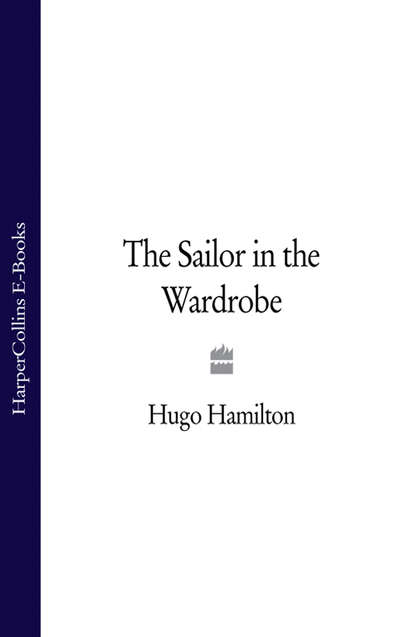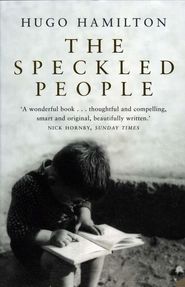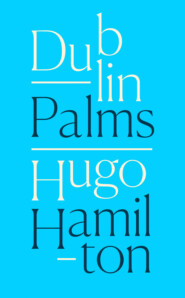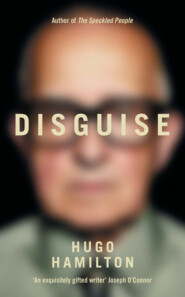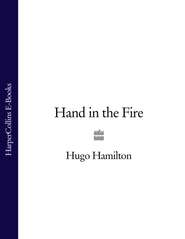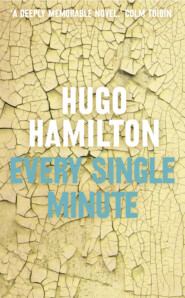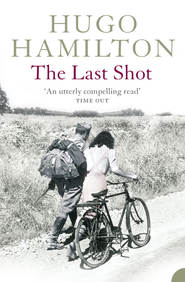По всем вопросам обращайтесь на: info@litportal.ru
(©) 2003-2024.
✖
The Sailor in the Wardrobe
Настройки чтения
Размер шрифта
Высота строк
Поля
I shook my head and looked at the ground.
‘Yes you are. Your mother is that lovely German woman who bakes cakes for the school?’ she said, but I kept shaking my head.
‘No. Not me.’
I knew she didn’t believe me, because she kept on looking into my eyes to see if she could get the truth out of me. I stared down at the lobster on the pier trying to open their claws and crawl away. She gave me the money and I put the lobster into a plastic bag for her. She said thanks and waited for a moment to see if I still might admit that I was German, but then she finally walked away across the pier. I saw the harbour boys all staring at her getting back into her car, holding her dress down to make sure the wind didn’t blow it up and show her legs.
I tied up the box and dropped it back down over the edge of the pier, scraping the wall as it descended. About halfway down, I saw the lid coming loose again. I hadn’t tied it well enough and now it was opening up. I looked around and saw everybody still watching the schoolteacher driving away. I tried to pull the box back up again, but that made everything worse. The lid flew open and the lobster started falling out, into the water below. There was nothing I could do. I pulled it right up onto the pier, but the remaining lobster were gone. I thought of jumping off the pier, diving down to search for them underwater. I thought of going over to Dan and telling him what had happened, offering to pay for them myself. But I wasn’t strong enough to do that. I had the weakness and I could think of nothing else but tying the lid down properly this time and letting the box down again into the water, hoping that nobody would think it was my fault.
When I got home, the house was silent and deserted, as if everybody had gone away. I walked in the door to find the oak trunk open. My mother had let history out again. It was all over the house and I could feel it in the air, like a special stillness in the rooms. There was no sound except the clocks ticking backwards. The door into the front room was open, holding its breath. The furniture seemed shocked and motionless, as if nothing would move on until the oak trunk was closed again. This is the ancient German trunk that came over to Dublin from her home in Kempen after the war. It’s where she keeps all her things and I could smell the candles and the Christmas decorations, the old letters and documents, even the smell of pine needles. It’s where she keeps her diaries, her old passports, all her precious possessions.
I searched through the rooms until I found my mother upstairs, sitting on her bed, leafing through the small leather-bound book that she carried in her suitcase from Germany when she first arrived in Ireland. She didn’t notice me coming in, as if she was completely in her own world, even though my brothers and sisters were in the room as well. We watched her putting the ancient book up to her face and inhaling the smell of the old pages, trying to go back to the time of Gutenberg when the book was printed. She glanced over the old lettering and stopped to admire the beginning of each chapter, where the first letter is spread over the entire page and coloured in with an intricate design, like a small German version of the Book of Kells. She was given this book as a gift by the family of her best friend in Mainz for helping them with food when people in Germany had nothing. It’s one of the few treasures she has, one that she takes out whenever she’s homesick and wants to remember where she comes from.
But this time it was more than that. I asked her what was wrong, but she remained silent. I thought it had something to do with me denying her at the harbour and that she would not speak to me any more. Beside her on the bed, there was a letter, left open with the envelope next to it. It had a German stamp and I knew she must have read the letter many times over already. Ciaran was playing with his cars on the floor of the room, making buzzing noises. And then my mother spoke as if she was talking to herself.
‘I don’t understand it,’ she said at last.
‘What?’
‘The book. They want it back.’
They were asking if she was still holding on to it for them. For safe-keeping, it said in the letter. She held the book close to her chest as if she expected them to come walking in the door any minute to take it away from her. It was like owning something precious that belonged to a museum. They had given it to her after the war when it was worth nothing, when the family wanted to show how grateful they were for all that she had done for them, keeping them alive with food. But now it had become valuable and there was a question of ownership. My mother never spoke of it being valuable. She loved it only because it was such a beautiful gift that was hundreds of years old and given to her under extraordinary circumstances.
‘Does it mean nothing to them any more?’ she asked.
I told her to write back and say she hasn’t got it. Say you’ve lost it, I suggested. Say you don’t know what they’re talking about. What old book printed around the time of Gutenberg about the lives of saints? My mother looked at me as if I was trying to persuade her to commit a crime. She could not lie. She would have to write back, tell them that it was the most treasured thing in the house apart from her own children. How could they think of asking her to give it back? She looked at the letter once more and said they had made her feel like a thief, as if she had taken it off them at a bad time, a time of crisis. That she was withholding it from its rightful owner. She felt that what she did in Mainz was no longer worth anything and that the memory of it has become undone by time. That everything was being taken back now and she was losing not just the book but one of her most precious memories as well.
‘Stefan is coming over to visit us,’ she said. ‘We better get ready.’
Stefan is the son of my mother’s school friend, Tante Käthe. I remember going to stay with them in Mainz when we were small. I remember Onkel Ulrich and Tante Käthe’s chemist shops in the city. Onkel Ulrich has a straight leg from the time that he was injured in the war. I saw him at Mass, keeping his right leg straight out and nobody making much of a fuss about it except us. I remember trying it out for myself for days, imagining what it would be like to be shot and not being able to bend one knee as long as you live. And Stefan. I remember Stefan because he was a good bit older than me and he didn’t really want to have much to do with us or let us play with his toys. And now he was grown up and coming over to Ireland to collect the book which they had given to my mother as a gift. Maria told my mother she should hide it in the attic. Ita said it was against the law to take back a gift. My mother put her arms around them and said she would never give the book back, no more than she would ever give away one of her own children.
That night I could hear her downstairs discussing it all with my father and him saying they had no moral right to demand back a gift that was given in good faith. Even when we were all in bed and the whole house was silent, everybody was still thinking about the book and where it should be hidden. I was thinking about Germany after the war and all the bombed-out cities. I thought of Stefan coming over and taking away the book from my mother and her crying because the last bit of Germany was going to be gone now. I thought about the lobster underwater, helplessly crawling through the seaweed with black rubber bands tied around their claws. I thought about how I betrayed my mother and how the lobster were making their way back out along the seabed, lost and defenceless, unable to open up their claws.
Five (#ulink_3ce2f614-0f61-5b06-b446-343a3a2d3fd5)
It started long before that, one year around Halloween when we tried to make friends with everybody. Myself and my brother Franz wanted to stop being outsiders, on our own all the time. We wanted to be insiders from now on, like everyone else in Ireland, so we decided to try and find some way of getting in with them. I started practising English on my own, saying things to the wall like ‘What are you lookin’ at?’ I rehearsed conversations out loud in my room, threatening to kick the shit out of the wardrobe and telling the door to watch out or else I would go over and straighten his face for him. I even practised the walk that they had around our place that my mother calls the ‘Glasthule Swagger’. I stopped to glance sideways at myself in the mirror before going out. I was the hard man of the house and I felt as real as anyone else out there.
They were collecting wood for weeks. I watched them after school carrying pallets and broken planks through the streets, all working together. Some of them had supermarket trolleys stacked up with junk from building sites, sheets of timber with rusty nails sticking out, anything that would burn. It’s the same every year. They keep it all hidden until the night of Halloween. Everybody knows where the bonfire is going to be, in the park with the railings, with the red-bricked national school on one side and the terraces of red-bricked corporation houses on the other. Every year, they say it’s going to be bigger than ever before. And every year, by the time the flames reach the height of the houses and the sparks begin to drift across the roofs, somebody calls the fire brigade and there’s trouble.
We wanted to be part of the big fire, so we found a wooden door in the laneway and decided to carry it down on the afternoon of Halloween. The blue paint was peeling off and it was submerged in weeds, but we kicked away the nettles and carried it down the street with the snails and worms still clinging on to one side. It was so heavy that we had to put it down every now and again along the way. Franz had the idea that we should roll it down on an old axle and wheels that we had from an old pram, but we were already halfway and just carried on. By the time we got there, they had begun to pile up the wood for the fire, so we brought it straight in through the gates of the park. We didn’t talk or say anything. We thought it was a good time for a truce, with everybody on the same side, so we placed our door standing up along with all their wood.
‘Look, it’s the Nazis,’ one of them said.
I was afraid they would tell us to fuck off and take away our door. But they needed every piece of wood they could get. They didn’t care if it was Nazi wood.
‘It’s a German door,’ they said. ‘It’ll burn like fuck.’
It felt strange to be helping the people who have always been against us, as if we were betraying ourselves. But it felt good at the same time because we were all going to be friends now for the sake of the fire. My mother says you have to be careful because they are the fist people and they never change. I knew they still wanted to put us on trial for being German. They still wanted to execute us, but maybe the night of the bonfire was the big moment where we could all forget history, I thought. Maybe they would overlook all that and allow us to take part.
We stood back to watch. There were two of them standing on top, pulling a broken bedside locker up on a rope. Everybody shouting and helping, passing in planks of wood through the railings and throwing car tyres around the base. A small boy brought a pile of ice-pop sticks. As it started getting dark, nobody paid much attention to us any more and we looked as Irish as everyone else.
At dinner, my mother helped us to escape. She doesn’t like fire. She’s afraid of things burning and the smell of smoke reminds her of the war, but she explained to my father that we had to be there because our contribution was made and we had to see our door in flames. It was fully dark outside now and I could hear bangers going off. My father looked angry, but I knew he was happy underneath because Halloween was an ancient Irish invention which they had in West Cork as well and the word bonfire in English came from the Irish words ‘Tinte Cnáimh’, the fires of bones. The day of the dead. As long as we didn’t speak English or take any of his wood, he said he had nothing against us going, so we ran down to see them starting the fire. I even had three bangers which I bought in the city from a woman on Moore Street who kept them under her apron. We let them off and our bangs were adding to all the other noise of rockets lighting up the sky around us.
There were children everywhere going around with masks and plastic bags full of treats. We used to do that as well, but everybody knew who we were underneath, because my mother always made the masks herself and they looked like German wolves and German monsters. The streets were full of gangs of children dressed up as Frankenstein. Sometimes there were three Draculas in one group, all looking the same but in different heights and ages. There were older people as well, on their way to a Halloween party somewhere. A girl dressed as an angel, in a miniskirt and high, black shiny boots and wings on her back, accompanied by a doctor in a white coat swinging a stethoscope around in his hand and chasing children away who were asking for cigarettes. There was fog and smoke everywhere, even before they started the fire the air was heavy and damp, like cold steam.
At the park, they were all gathering to watch one of the older boys on top of the wooden structure with a canister, pouring petrol over the top. Another boy poured petrol all around the sides. Finally, a cheer echoed around the terraces and the yellow light of the flames was reflected on the walls and in the windows and in the faces all around the fire. Even the railings turned gold.
It didn’t take long for the sparks to crack. There was shouting and somebody called it an inferno. They were shielding their eyes from the flames with their elbows. Others were drinking beer and smoking as they threw bits of lighting wood that had fallen out, back in again. Our blue door was in flames now and it looked as if you could open it and walk straight into the interior of the fire. It was the door to hell. My brother Franz and I stood watching like everyone else. We were the inferno-brothers. We had dark eyes and yellow faces, as if we had just come back out from inside the fire and shut the flaming door behind us.
And then we could hear the fire-brigade siren in the distance. The sparks were being carried across the roof of the school and we knew what was coming. As soon as the blue light of the fire brigade began to flash around the terraces, Franz moved back.
‘I’m going now,’ he said.
I tried to make him stay but he didn’t want trouble. He doesn’t want to witness anything like my mother witnessed in Germany. I told him not to be so scared of things, but he was suddenly gone from my side. And maybe it’s easier when I’m on my own, to feel that I belong to them now.
As soon as the fire brigade pulled up outside the railings, the jeers began from inside. Cursing and booing. Somebody said it was a riot, but the firemen ignored it all and smiled. It wasn’t so long ago that they were doing this kind of thing themselves, but now it was their duty to put it out. They un-spooled the hose and directed the water at the flames. As the fire began to hiss, the boys started throwing things, empty beer cans and loose branches. Then it was sods of grass which they picked up all around them in the park, harmlessly hitting the black uniforms of the firemen as if they didn’t even notice.
I belonged to the Irish fire now. I was carried away by the anger of the crowd and had no option but to pick up a sod of my own, not so much to hit anyone but to prove that the fire mattered as much to me as it did to them. The firemen were reducing the great flames to nothing. You could feel the heat fading and the shouts becoming more hostile. Bastards. Fuckers. I heard myself joining in. Words I had only heard them use against me, now became my words too.
More sods were thrown. Bigger ones. This time I picked up the heaviest sod I could find. I pulled at the long grass until a large clump of earth came loose and it felt like I was holding a severed head by the hair. I could hardly swing it around me. The trouble was that when I let go, I discovered my aim was a lot better than I imagined. I could already see that it was going to hit one of the firemen directly in the head. It flew through the yellow air like a black skull with grassy golden hair flying back. I could see the shock in his eyes as the sod crashed into the side of his face, just as he turned his head around.
‘You little bastard,’ he shouted.
He wiped his eyes and brushed bits of soil out of his collar, then straightened his helmet.
‘Sorry, mister,’ I said.
I wanted to tell him I didn’t actually mean to hit him. But it was already too late for that because the boys around me were cheering.
‘Great shot.’
‘Look, he knocked the fuckin’ head off a fireman.’
For the first time ever, I had done something which made me into a hero. I would be accepted now. They were saying the Germans were amazing marksmen to be able to hit somebody from that distance with a sod. Every time I would walk down the street from now on, they would think of me as the guy who clobbered the fireman. I would no longer be an outsider and they would be clapping me on the back, asking me to do it again, to see if I could break a street light with a stone. But as they kept cheering and laughing, I knew they were making things worse for me, because now I had the fireman to deal with.
‘Sorry,’ I said once more. ‘I didn’t mean it.’
I saw the rage in the fireman’s face and ran away, hoping that he wouldn’t follow me. I heard the sound of him cursing and his heavy boots thudding in the grass behind me. There was no escape. I was going to arrive at the railings and be trapped, away from the fire and away from the crowd, with nobody coming to stand by me.
At the corner, I turned around to beg for mercy with my hands up. There was a gap in the railings, but I didn’t really believe I could get away. I knew there were bars missing in other places, where boys crossed the park rather than walking all the way around. I was too numb to think of escaping, so got ready to surrender.
‘Please mister, don’t hit me,’ I said. ‘It was an accident.’
The fireman slowed down to a walk because he knew he had me cornered. Even in the darkness I could see from his eyes that he was not going to show me any mercy. At that last minute, I decided to try and climb through the bars. I felt his hand on my neck and heard his voice saying ‘little fucker’ in my ear. He was too big to get through the gap himself, but his arm was stretched out through the bars holding on firmly to my clothes.
‘Stop him,’ he shouted at some men walking by on their way to Eagle House for a drink. He tried to drag me back in through the gap and I was pulling away with my foot up against the railings.
‘Hold the little bastard for me.’





